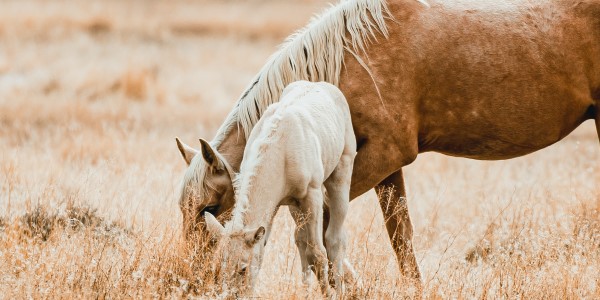Did you know that wild horses are good for the environment? Wild horses, also known as mustangs in North America, play a vital role in promoting environmental health and biodiversity. Firstly, these magnificent creatures help control plant overgrowth through their grazing habits. By consuming various types of vegetation, wild horses can prevent the dominance of certain plant species. This promotes the growth of various plants. This natural grazing behavior can prevent the spread of invasive plant species. It also contributes to the overall balance of the ecosystem. Continue reading for more information. Also, if you are looking for a horse property for sale in Colorado, contact Colorado Horse Property today and speak with one of our horse-person realtors.
How Are Wild Horses Good For The Environment?
Wild horses help disperse seeds, inadvertently aiding in the regeneration of plant life. As they search for food and water, they carry seeds in their fur and digestive tracts. These seeds are subsequently deposited throughout their range. This assists in the natural reseeding of native plants and contributing to the overall biodiversity of the region. The presence of wild horses can enhance the landscape’s resilience to environmental changes. Their activities, such as digging for water in dry riverbeds or wallowing in mud holes, create small-scale disturbances that can serve as microhabitats for a variety of other wildlife. These disturbances can increase the overall habitat diversity and provide opportunities for smaller animals, birds, and insects to thrive in these unique niches.
In summary, wild horses play a valuable role in maintaining the health and diversity of their native ecosystems. Through their grazing habits, seed dispersal, and habitat modification, they contribute to the ecological balance and resilience of their environments, making them an integral part of the natural landscape. Efforts to protect and manage wild horse populations should take into account their positive impact on the environment and the broader ecological benefits they provide. Colorado is home to a bustling wild horse population.

